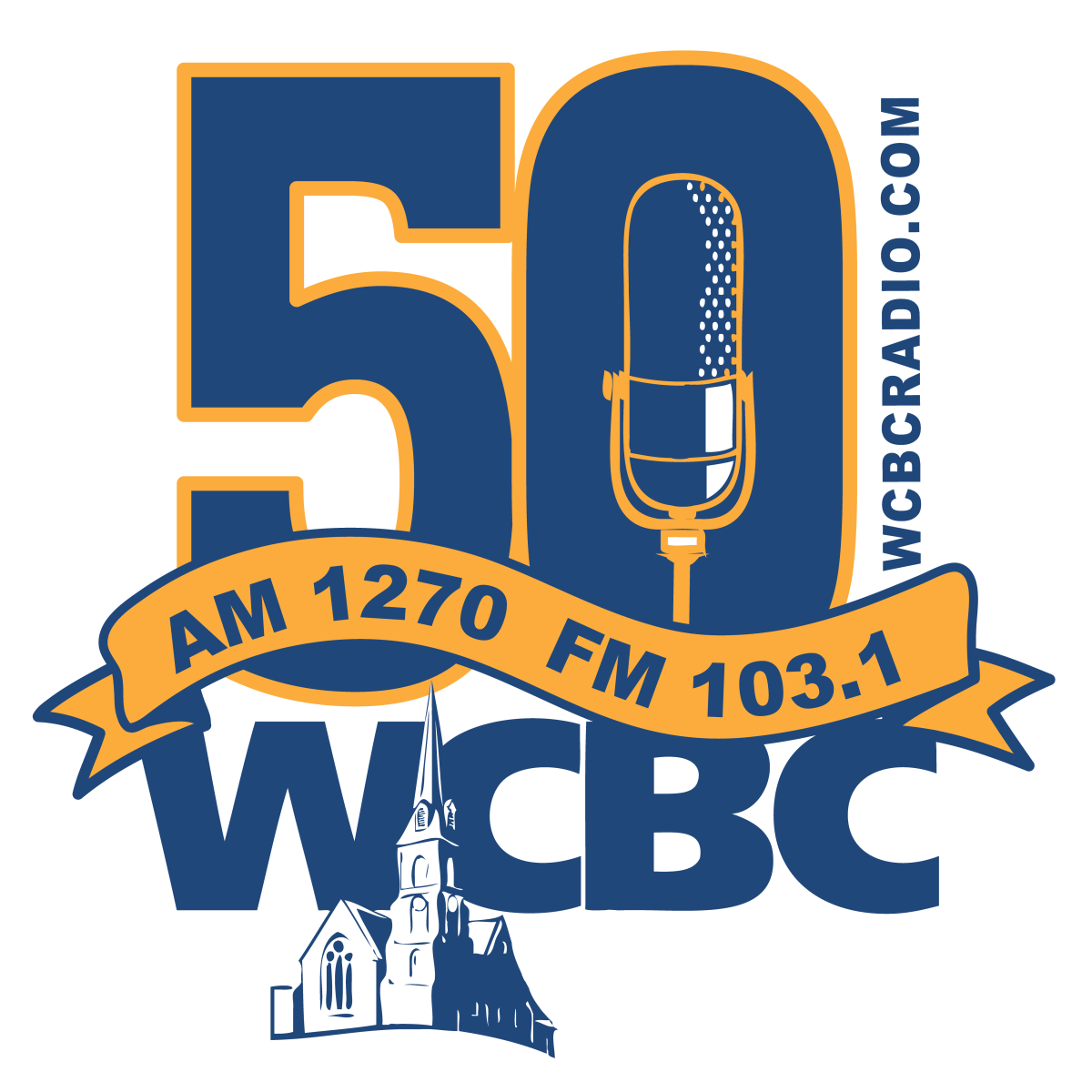March 20th, 2020 by WCBC Radio
Gov. Larry Hogan's administration has provided an A-to-Z resource guide for Maryland residents during the coronavirus outbreak.
“I know that there’s a lot of anxiety out there and a lot of stress. Folks are worried about what lies ahead and how we’re going to get through this," Hogan said in a statement on the governor's website. "We’re all worried about our family members and our loved ones, about our communities and neighborhoods. But I want everybody in Maryland to know that if we continue to lead, we continue to work together, and if we rely on and help each other, we will get through this crisis.”
HOGAN'S A-TO-Z RESOURCE GUIDE:
- Bars and Restaurants: Hogan has issued an amended executive order to close all bars and restaurants in the state, as well as fitness centers, spas, and theaters, effective at 5:00 p.m. Monday, March 16. The order allows for restaurants to continue carry-out, drive-thru, and delivery services. On March 19, Hogan issued an emergency order that allows for delivery and carry-out sales of alcohol by restaurants, bars, distilleries, and wineries, subject to local laws.
- Businesses: The Maryland Departments of Labor and Commerce have compiled resources for businesses whose daily operations are impacted by the state of emergency. Essential services like banks, gas stations, grocery stores and pharmacies are to remain open. Small businesses can apply for relief at www.disasterloan.sba.gov. Questions? Please contact Secretary.Commerce@maryland.gov.
- BWI-Thurgood Marshall Airport: Hogan has directed the Maryland Department of Transportation to restrict access to the BWI Marshall Terminal to ticketed passengers and employees only. Exceptions will be made for visitors assisting disabled passengers. Maryland Transportation Authority Police will strictly enforce this policy.
- Casinos: Hogan has issued an emergency order to close all Maryland casinos, racetracks, and simulcast betting facilities to the general public indefinitely. Read the executive order.
- Child Care: Hogan issued an emergency order to ensure that child care services are available for providers of health care, emergency medical services, and law enforcement personnel while schools are closed. Maryland State Department of Education Superintendent Karen Salmon has also issued enhanced guidelines for child care programs and day care facilities to follow to prevent the spread of COVID-19. Learn more.
- Cruises: No passenger or crew member will be allowed to disembark at any terminal at the Port of Baltimore from any passenger vessel that has made a call at port outside of the United States since January 31, 2020. Read the executive order.
- Elections: Hogan has issued a proclamation postponing the April 28 primary to June 2. The State Board of Elections is directed to develop a comprehensive plan by April 3 for conducting the primary election in a way that maintains public confidence and trust while preserving public health and safety. The special general election for the 7th Congressional District will still occur on April 28, but the State Board of Elections is directed to implement a vote-by-mail system. Read the governor’s proclamation.
- Evictions: Hogan has issued an emergency order that prohibits Maryland courts from ordering the eviction of any tenant who can show that their failure to pay rent was the results of COVID-19—for example, because of lost or reduced unemployment, or needing to care for a school-aged child—or because they are diagnosed with, or under investigation for, COVID-19. Read the governor’s emergency order.
- Free and Reduced Meals: The Maryland State Department of Education (MSDE) applied for a federal waiver and beginning today, has the capability to provide three meals a day, and a snack, to students impacted by the statewide closure of schools. MSDE has hundreds of meal distribution centers across the state, which can be found at mdsummerschools.org.
- Gatherings: Gatherings of more than 10 people, including social, community, spiritual, religious, recreational, leisure, and sporting gatherings, at all locations and venues are to be cancelled or postponed. Read the executive order.
- Hospitals: The Maryland Department of Health is advising hospitals to adopt new procedures to limit visitation, including screening visitors for flu-like symptoms and allowing only one adult visitor per patient in all areas of the hospital. Hogan has also issued an omnibus health care order that includes increasing hospital capacity, activating the Maryland Responds Medical Reserve Corps, and lifting restrictions on healthcare practitioners.
- Insurance: The Maryland Health Benefit Exchange is establishing a special enrollment period through Maryland Health Connection specifically for the coronavirus. Learn more.
- Isolation: Refers to separating people who are sick from those who are not to help prevent the spread of an infectious disease. It lasts as long as the disease is contagious. Learn more.
- Licenses and Permits: All licenses, permits, registrations, and other authorizations issued by the state, its agencies or any political subdivision that would expire during the current state of emergency will be extended until the 30th day after the state of emergency is lifted. Read the executive order.
- Malls: Hogan has expanded his emergency order to require the closure of all enclosed shopping malls and entertainment venues, including bowling alleys, bingo halls, roller rinks, and amusement parks. The Governor’s Office has issued interpretive guidance for grocery stores, pharmacies, and health care providers in malls. Learn more.
- Medical Reserve Corps: The governor directed the Secretary of Health to activate the Maryland Responds Medical Reserve Corps, a community-based, civilian volunteer program that helps build the public health infrastructure and response capabilities of Maryland communities. The network consists of dedicated responders who stand ready to volunteer their skills, expertise and time to support ongoing public health initiatives and assist during emergencies. Learn more.
- National Guard: The governor directed the National Guard to move to a higher state of readiness in order to carry out any necessary emergency functions, such as food distribution or other critical areas of need. As of Monday, March 16, one thousand Maryland National Guard soldiers and airmen are fully activated and another 1,200 guardsmen are in a state of enhanced readiness. Read the executive order.
- Nursing Homes: The Maryland Department of Health (MDH) has issued new guidance for facilities that serve older people, including restricting access to essential visits only and restricting activities and visitors with potential for exposure. Read MDH’s guidance here.
- Quarantine: Separates and restricts the movement of people who have been exposed to a contagious disease to see if they become sick. It lasts long enough to ensure the person has not contracted an infectious disease. Learn more.
- Schools: Maryland State Department of Education (MSDE) State Superintendent Karen Salmon is directing that beginning on Monday, March 16, all schools throughout Maryland will close through Friday, March 27, 2020. Read the MSDE press release.
- Senior Centers: Senior centers closed beginning on Friday, March 13, 2020 until after termination of the state of emergency and the proclamation of the catastrophic health emergency has been rescinded. Read the executive order.
- Social Distancing: The practice of preventing people from interacting closely or frequently enough to spread an infectious disease. This is the objective of limiting gatherings, encouraging telework, and closing public places.
- State Employees: Hogan has directed the Department of Budget and Management to implement a period of mandatory telework, beginning Friday, March 13, across state agencies for all non-essential state employees. Read the Department of Budget and Management’s guidance here.
- State Facilities: Until further notice, all public access to state buildings, including the state house will be restricted.
- State of Emergency:The World Health Organization has declared the coronavirus outbreak a global pandemic. The State of Maryland is continuing to operate under a state of emergency, and all levels of government are taking a comprehensive, collaborative approach to keep Marylanders safe.
- Testing: Like all laboratory tests, testing for COVID-19 is a clinical decision made by a health care provider. Testing for COVID-19 may not be appropriate for everyone. Testing availability will expand as more testing supplies become available. Learn more.
- Transit: Maryland’s Department of Transportation is taking action to support social distancing while still ensuring the movement of critical resources and personnel. The state is urging citizens to utilize transit for essential travel only, including emergency personnel, front-line health care workers, and anyone whose job is critical to the supply chain. Learn more.
- Prisons: The Maryland Department of Public Safety and Correctional Services is discontinuing visits for individuals currently in infirmaries, reducing programs and movement within facilities, providing more video visitation opportunities, and requiring staff who exhibit flu-like symptoms to remain home.
- Public Health Surge: Public health surge encompasses coordinated public health preparedness and response activities including mass social distancing, transmission mitigation, risk communication and epidemiologic investigation. Learn more about Maryland’s public health surge.
- Universities: Hogan has asked the University System of Maryland Board of Regents to keep all students off campus and finish the spring semester online. Students and their families should stay tuned for updates from their respective colleges and universities.
- Utilities: Hogan has issued an emergency order that prohibits electric, gas, water, sewage, phone, cable TV, and internet service provider companies from shutting off any residential customer’s service, or charging any residential late fees. Read the governor’s emergency order.

















